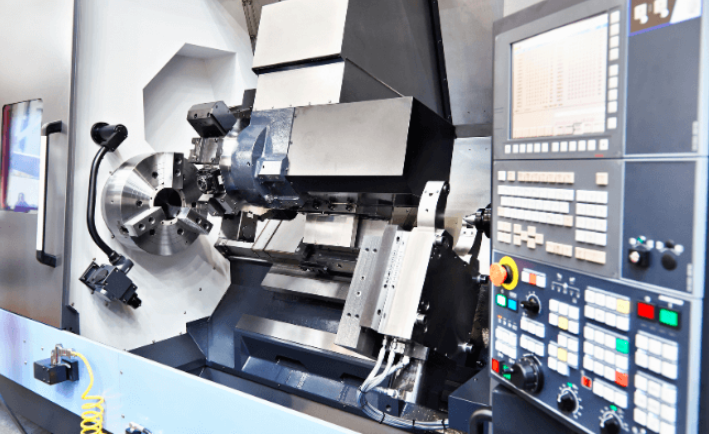CNC Turning Services: Precision and Efficiency in Machining

CNC turning services play a crucial role in modern manufacturing, offering high precision, speed, and consistency for creating cylindrical components. Industries such as aerospace, automotive, medical, and electronics rely on CNC turning to produce high-quality parts that meet strict specifications.
This article explores CNC turning services, how they work, their advantages, applications, and why they are essential in today’s industrial landscape.
What Are CNC Turning Services?
CNC turning is a machining process that involves rotating a workpiece while a stationary cutting tool removes material to shape it into the desired form. Unlike milling, where the cutting tool moves around a stationary workpiece, CNC turning spins the material, allowing for precise cylindrical, conical, and complex geometries.
CNC turning services utilize advanced computer numerical control (CNC) technology, ensuring accuracy and repeatability. The process is automated, reducing human errors and increasing production efficiency.
How CNC Turning Works
The CNC turning process follows a structured workflow to ensure accuracy and efficiency:
1. Designing the Part
Engineers create CAD (Computer-Aided Design) models, specifying dimensions, tolerances, and materials for the part.
2. Converting the Design to CNC Code
The CAD design is converted into G-code, which instructs the CNC lathe on how to move, cut, and shape the material.
3. Loading the Workpiece
A cylindrical raw material, such as metal, plastic, or composite, is secured onto the lathe’s chuck.
4. Rotating the Workpiece
The CNC lathe spins the material at high speeds while a stationary cutting tool removes material layer by layer.
5. Shaping and Finishing
Depending on the complexity of the design, multiple cutting tools may be used to create grooves, threads, holes, and fine details.
6. Quality Inspection
Once machining is complete, the part undergoes inspection and quality checks to ensure it meets specifications.
Advantages of CNC Turning Services
CNC turning services offer several benefits that make them a preferred choice in precision manufacturing.
1. High Precision and Accuracy
CNC turning machines operate with tight tolerances, ensuring consistency in every part produced. This is crucial for industries where precision is non-negotiable.
2. Faster Production Times
Since CNC lathes are automated, they can produce large quantities of parts quickly while maintaining accuracy, reducing lead times.
3. Cost-Effective Manufacturing
Automated turning reduces labor costs, material waste, and rework expenses, making CNC turning a cost-efficient solution for both small and large production runs.
4. Versatility in Materials
CNC turning services support a variety of materials, including:
- Metals: Aluminum, brass, stainless steel, titanium, copper
- Plastics: ABS, PEEK, nylon, acrylic
- Composites: Carbon fiber, fiberglass
5. Complex Geometries and Customization
CNC turning can produce intricate designs, internal bores, external threads, and smooth finishes, allowing for customization across different industries.
6. Scalability for Prototyping and Mass Production
Whether you need a single prototype or thousands of identical parts CNC turning servicesoffer flexibility for different production needs.
Applications of CNC Turning Services
1. Aerospace Industry
CNC turning is used to manufacture engine components, turbine blades, landing gear parts, and structural fasteners with extreme precision.
2. Automotive Components
Automobile manufacturers rely on CNC turning for axles, shafts, gears, and brake system components, ensuring safety and performance.
3. Medical Equipment and Implants
The medical industry requires surgical instruments, orthopedic implants, and prosthetic components that meet strict hygiene and accuracy standards.
4. Electronics Industry
Precision-turned components such as connectors, pins, and casings are essential in modern electronics manufacturing.
5. Industrial Machinery and Tools
CNC turning is used to create custom fixtures, jigs, and machine tool components for manufacturing applications.
Read also: Why Businesses Are Investing in Animation: The Rise of Video Marketing in 2025
6. Defense and Military Equipment
CNC turning services produce weapon parts, aircraft components, and military-grade hardware that meet stringent quality and durability requirements.
CNC Turning vs. CNC Milling
Both CNC turning and CNC milling are essential machining processes, but they differ in approach and application.
| Feature | CNC Turning | CNC Milling |
| Workpiece Movement | Rotates on a spindle | Stationary while cutting tool moves |
| Cutting Tool Movement | Stationary or moves along a fixed path | Moves in multiple directions |
| Best for | Cylindrical, conical, and symmetrical parts | Complex 3D shapes and flat surfaces |
| Production Speed | Faster for round parts | Slower for intricate designs |
| Cost | More cost-effective for high-volume cylindrical parts | Higher cost for complex geometries |
Choosing the Right CNC Turning Service
To ensure the best quality and efficiency, it is essential to choose a CNC turning service provider carefully. Here are key factors to consider:
1. Experience and Expertise
Look for a provider with a track record of delivering high-precision CNC turning services for various industries.
2. Material and Finish Options
Make sure the service offers a wide range of materials, coatings, and finishing services such as anodizing, plating, and polishing.
3. Quality Assurance
Check if the company follows ISO standards and quality control procedures to guarantee precision and durability.
4. Lead Times and Pricing
Compare quotes from multiple providers to find the best balance between cost, turnaround time, and quality.
5. Customer Support and Flexibility
A good CNC turning service should offer responsive customer support and be flexible enough to handle custom and urgent orders.
The Future of CNC Turning Services
As manufacturing technology advances, CNC turning services continue to evolve. Here are some trends shaping the future:
1. Smart Automation and AI Integration
AI-driven CNC machines optimize cutting speeds, tool changes, and material usage, reducing waste and improving efficiency.
2. Improved Precision with High-Speed Machining
Advancements in tooling and software allow for even tighter tolerances and higher-speed machining, increasing productivity.
3. Sustainable Manufacturing
Eco-friendly materials and energy-efficient CNC machines are gaining popularity to minimize the environmental impact of machining.
4. Hybrid Manufacturing
Combining CNC turning with additive manufacturing (3D printing) will create innovative production methods for complex components.
5. Digital Twin Technology
Manufacturers are adopting digital twin simulations to test CNC machining processes before production, reducing errors and costs.
Conclusion
CNC turning services are a vital part of modern manufacturing, offering high precision, efficiency, and cost-effectiveness. From aerospace to medical and automotive industries, CNC turning is widely used for creating cylindrical and complex components with extreme accuracy.
With advancements in automation, AI, and sustainable practices, CNC turning services will continue to evolve, ensuring that manufacturers can produce high-quality parts faster and more efficiently than ever before. Choosing a reliable CNC turning service provider is crucial to achieving the best results, whether for prototyping or mass production.







